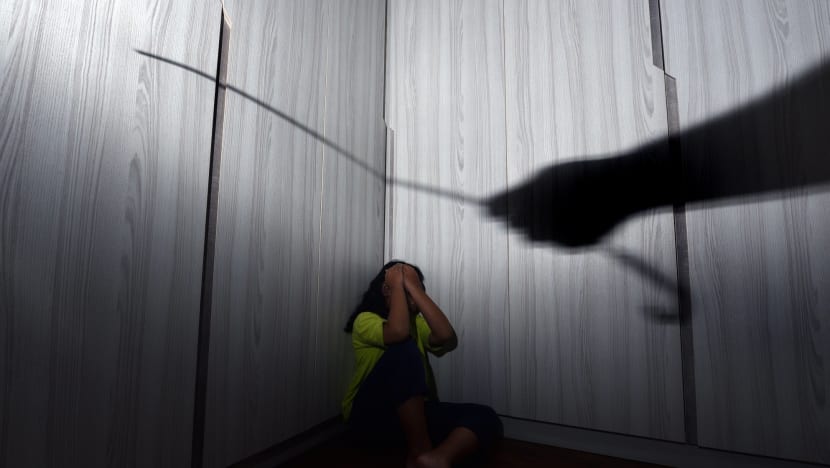Commentary: Is smacking children ineffective and bad for their development?
One finding is clear amongst the controversy about smacking: It is never positive for children's development, says a psychologist.

Photo illustration of a child being caned. (Photo: Jeremy Long)
WINCHESTER, England: The question of whether it is ever acceptable to smack a child – hit them with the inside of one’s hand with the aim of achieving compliance – is still highly controversial. In England, this controversy was reignited in April by former education secretary, Nadhim Zahawi, who said that “the discipline of children should be left up to parents”.
Smacking is currently illegal in 63 countries, including Wales and Scotland. In England and Northern Ireland, though, parents remain free to smack their children.
Typically, the main argument against banning parents from smacking their children is based on respecting parents’ rights. Zahawi said that the state should not “nanny” parents about how to raise their children.
In contrast, child protection groups and psychologists argue that the decision on whether to ban smacking should be based on what is best for the child rather than the parent.
They point to psychological research as a source of information on whether smacking is good or bad for children.
LINKS TO BEHAVIOURAL, SOCIAL AND MENTAL HEALTH PROBLEMS
Research has found that physical punishment, such as smacking, is both ineffective and bad for children’s development. Research which analysed a range of studies on physical punishment found that, in fact, this punishment made children’s behaviour worse.
Often, children still do not obey their parents’ orders after being disciplined. And even when they do, a punishment such as smacking does not help the child understand why their actions were wrong. This is because sometimes the discipline comes with no explanation.
Also, the child may be too caught up in their own emotions to be able to understand why their actions were wrong. In the future, the child may follow their parents’ orders because of a fear of being physically punished again, not because they understand that it is the right thing to do.
In terms of how it affects child development, physical punishment has been linked to behavioural, social and mental health problems throughout childhood and adolescence.
Children are more likely to have emotional and mental health issues, such as anxiety and depression. They also have a higher chance of developing aggression and engaging in risky behaviours. These effects can harm the relationship between the parent and the child, and between the child and their peers.
A strong argument against the use of smacking is that children who are smacked are at higher risk of experiencing maltreatment and abuse by their parents. This is because over time it may take more and more force to have the same effect.
SMACKING IS A PARENT'S EMOTIONAL RESPONSE
Parental stress plays an important role in the use of physical punishment. When parents are stressed, they are less sensitive towards their children’s needs and are more likely to use harsher means of discipline, such as smacking.
A parent who occasionally smacks their child may end up smacking their child more often or using harsher forms of physical discipline when they become stressed. Smacking is an emotional response, often done when parents do not know how to control their children.
My colleagues and I at the University of Winchester conducted a study during the first COVID-19 lockdown in the UK. We asked 322 parents about their stress levels and their discipline practices.
Unsurprisingly, parents reported being much more stressed than before the pandemic. Parents who were very stressed reported disciplining their children more frequently and being harsher with them. Our findings are consistent with multiple reports claiming that the risk of violence against children increased worldwide during COVID-19 lockdowns.
OTHER FORMS OF DISCIPLINE AVAILABLE
Nevertheless, some psychologists have argued that we cannot categorically say that smacking is negative for children. In some cases, the studies examining smacking do so in combination with other forms of corporal punishment, such as punching or hitting. Therefore, they argue that the real effects of smacking on children’s development may have been exaggerated.
Furthermore, some claim that most research on this topic cannot clearly establish that smacking is definitely the cause of negative consequences for children – just that there is a link between smacking and negative consequences for children.
However, one finding is clear amongst the controversy about smacking. It is never positive for children’s development.
Research evidence overwhelmingly shows that physical punishment such as smacking has negative outcomes. Parents can use a range of other forms of discipline to help children understand why their behaviour is wrong.
These include time-outs (removing a child from an environment where they are doing something that they should not do), reasoning with the child or taking away privileges, such as removing their video game console for the weekend.
Parents should use these discipline techniques instead of smacking.
Ana Aznar is a Senior Lecturer in Psychology at the University of Winchester. This commentary first appeared in The Conversation.














